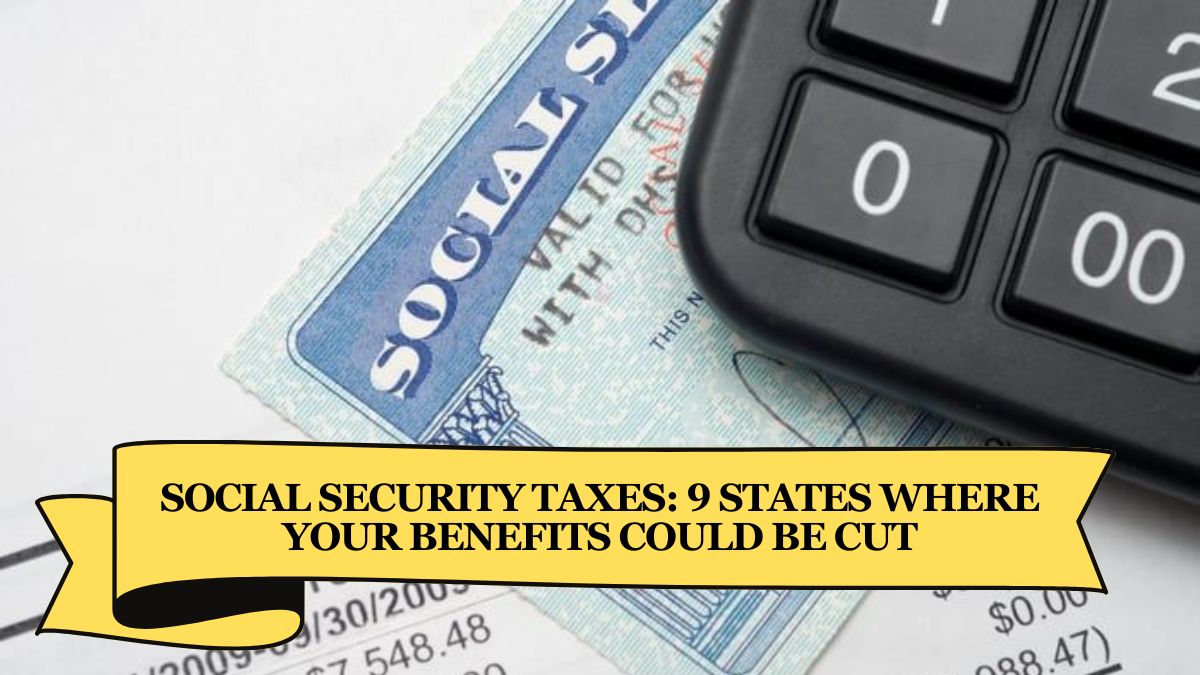Social Security benefits play a crucial role in many Americans’ retirement plans. For most people, these monthly payments are essential to making ends meet after leaving the workforce. However, not all retirees are able to keep the full amount of their Social Security benefits. In some states, your benefits may be taxed, which means you could end up with less money than expected. If you’re living in one of these nine states, it’s important to understand how taxes on Social Security might affect your retirement income.
Why Social Security Benefits Matter for Retirees
Social Security is the main source of income for millions of older Americans. According to the Center on Budget and Policy Priorities, approximately 16.3 million seniors depend on these benefits to avoid living below the poverty line. For most retirees, every penny counts. Even a small reduction in their Social Security check can make it harder to pay for essentials like food, housing, and healthcare.
Many people think that Social Security benefits are free from taxes. However, this is not always the case. Some states tax Social Security benefits based on the amount of income you receive, which could reduce the amount you get each month.
States That Tax Social Security Benefits
While Social Security is not taxed by the federal government in most cases, some states have chosen to tax it. The states that do this have different rules about how much of your benefits are taxed and who is affected. Some states will tax Social Security benefits only if you have a higher income, while others might tax benefits more broadly.
Here’s a list of nine states that tax Social Security benefits:
- Connecticut
- Minnesota
- Nebraska
- North Dakota
- Rhode Island
- Utah
- Montana
- Vermont
- Kansas
Each of these states has specific rules about how Social Security benefits are taxed, and the amount you owe may depend on your income level, your filing status, and other factors.
How Much Will Social Security Be Taxed?
The amount of Social Security benefits taxed varies by state. In some states, only a small portion of your benefits is taxed, while in others, you might face a higher tax rate. For example, in Minnesota, a portion of your Social Security benefits may be taxed if your income exceeds a certain threshold. On the other hand, Kansas applies a state tax to Social Security benefits for individuals with higher income levels.
In some states, like Connecticut, taxes on Social Security benefits can be significant, especially for retirees with higher income. This means that retirees could see their monthly benefits reduced by nearly 10% or more, depending on their income.
Are You Affected by Social Security Taxes?
Not all retirees are affected by taxes on Social Security benefits. Many states have income thresholds that must be met before your benefits are taxed. For example, in some states, only retirees with an income above a certain level, such as $50,000 for individuals or $100,000 for couples, will be subject to taxes on their Social Security.
If you live in one of the nine states mentioned, it’s important to check if your income qualifies for these taxes. Additionally, you may want to consider consulting a tax professional to help you understand how taxes on Social Security could impact your retirement budget.
What You Can Do to Minimize Taxes on Social Security Benefits
If you’re worried about how taxes will affect your Social Security benefits, there are a few things you can do. The first step is to make sure you’re staying informed about the tax laws in your state. States may change their rules over time, so it’s important to stay up to date.
You can also look for ways to reduce your overall income. For example, some retirees choose to delay withdrawing from certain retirement accounts to keep their income lower and avoid triggering Social Security taxes. You could also look for other ways to reduce your taxable income, such as contributing to tax-advantaged accounts like IRAs or 401(k)s.
The Impact on Your Retirement Income
For many retirees, the last thing they want to deal with is a reduction in their Social Security checks. However, the possibility of state taxes on Social Security benefits is a reality in some areas. If you live in one of the states that taxes Social Security, it’s important to plan ahead and adjust your budget accordingly.
If you find yourself facing a tax on your Social Security benefits, consider consulting with a financial advisor. They can help you create a plan to ensure you can still live comfortably in retirement, even with a smaller Social Security check.
Conclusion
Social Security benefits are a lifeline for millions of retirees, but in some states, they can be taxed, reducing the amount of money you receive each month. Nine states currently tax Social Security benefits, and this could mean a reduction of up to 10% or more for some retirees. It’s important to understand the tax rules in your state and take steps to minimize the impact on your retirement income. By staying informed and adjusting your financial plan, you can ensure that your Social Security benefits continue to provide the support you need during your retirement years.
Must Visit: California State Online

